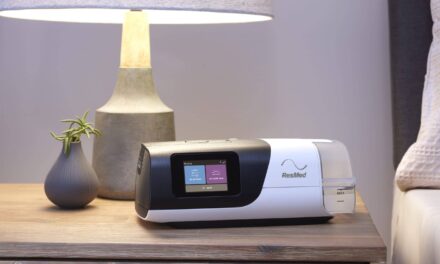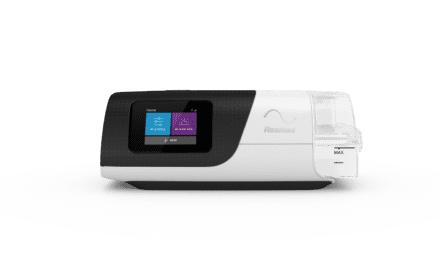April 5, 2007
Dan Bunting, COO and CFO of evo Medical Solutions, Adel, Iowa, answered questions from Sleep Review about his company’s decision to appeal directly to RTs and HME providers to register their support for a CMS coverage criteria change that would encourage greater use of home sleep diagnostic testing.
SR: Why did Evo Medical decide to ask RTs and HME providers to write CMS on this issue?
Bunting: evo Medical Solutions is in business to provide healthcare products, and we strive to stay on the forefront of new technology, new processes, and more efficient methods of serving the industry and its patients. We believe if CMS would cover this new technology, it would provide an additional option for OSA diagnosis. Though requested of CMS by the American Academy of Otolaryngology-Head and Neck Surgery, evo believes HME’s and RT’s should have their voice in what would be a paradigm shift in the care of this vastly under-diagnosed patient base. The growing awareness of sleep apnea has led providers to recognize that a large number of patients suspected of having this disease are either reluctant or unable to undergo a study in a sleep lab. For many patients, especially Medicare beneficiaries, traveling to a sleep laboratory can be a significant hardship. As a result, many do not seek the care they need. We believe this allowance by CMS would benefit the entire sleep therapy industry and improve the quality of life for many patients currently suffering from OSA. For the HME providers, it opens a whole new area of service that is currently not available to them, for the Respiratory Therapists it allows them to be more directly involved with their OSA patients, and for the sleep labs and sleep doctors, it allows them to pre-screen and connect with those unwilling or geographically unable to come to a lab. We just don’t see a negative with this initiative to ask CMS to cover in-home sleep testing.
SR: This is the second time CMS is considering covering home testing. The first time it decided against coverage. Was a lack of organized support for home testing a problem the first time it was considered? Does the company think things will be different this time around?
Bunting: In the 2005 ruling, CMS cited insufficient evidence to conclude that unattended portable multi-channel sleep study testing is reasonable and necessary in the diagnosis of OSA for CPAP therapy. In-home testing proponents have long maintained that the lobbying power of the American Academy of Sleep Medicine and their doctor members were largely responsible for defeating the measure, which they believed would negatively affect their financial model. In our experience, most sleep doctors/labs now understand this is not the case. We believe things will be different this time around because of the increasing awareness of the disease state, more acceptance and approval in the medical community as a whole, and a clear need to save money in the healthcare system by getting these patients help for their OSA sooner, thereby avoiding more costly and catastrophic health outcomes.
SR: How would Evo Medical answer critics that might say the company is only acting because it has a financial interest in the issue?
Bunting: Research has proven that home-testing is accurate, reliable, FDA-approved, and cost-efficient. While evo is a for-profit firm (as are most healthcare entities), we support medical options that are in the best interest of the patient, enhance the overall industry of healthcare, and have the potential to offer cost savings for CMS. We felt that someone needed to take a leadership role and ask our industry to step up and support this initiative. It’s in the best interest of our industry for CMS to support new proven technology that gives patients more options, ultimately resulting in better healthcare. If in-home sleep testing can benefit the entire sleep medicine industry, why shouldn’t we ask our industry to speak out? As long as we keep our focus on what’s in the best interest of the patients, we all will win — medicine, business, and the patients. Without supporting the growth and implementation of new technology, it makes it more difficult for our industry to sustain the investment in research and development, which ultimately hurts the entire healthcare industry and its patients. We and CMS should both do our best to put patient care and quality of life first.




